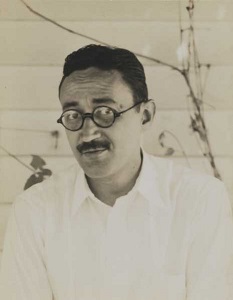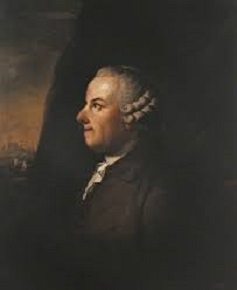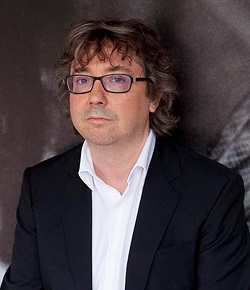Aan alle bezoekers en mede-bloggers een Prettig Kerstfeest!
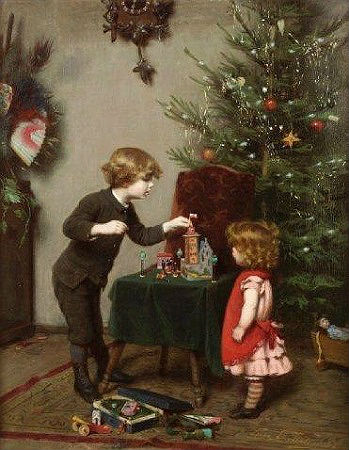
Kerstmis door Felix Ehrlich, 1889
Der Weihnachtsbaum
Ich lag und schlief, da träumte mir
ein wunderschöner Traum;
es stand auf unserm Tisch vor mir
ein hoher Weihnachtsbaum.
Und bunte Lichter ohne Zahl,
die brannten ringsumher,
die Zweige waren allzumal
von goldnen Äpfeln schwer.
Und Zuckerpuppen hingen dran:
Das war mal eine Pracht!
Da gab´s, was ich nur wünschen kann
und was mir Freude macht.
Und als ich nach dem Baume sah
und ganz verwundert stand,
nach einem Apfel griff ich da,
und alles, alles schwand.
Da wacht´ ich auf aus meinem Traum.
Und dunkel war´s um mich:
Du lieber, schöner Weihnachtsbaum,
sag an, wo find´ ich dich?
Da war es just, als rief er mir:
“Du darfst nur artig sein,
dann steh´ ich wiederum vor dir —
jetzt aber schlaf nur ein!
Und wenn du folgst und artig bist,
dann ist erfüllt dein Traum,
dann bringet dir der Heil´ge Christ
den schönsten Weihnachtsbaum.”
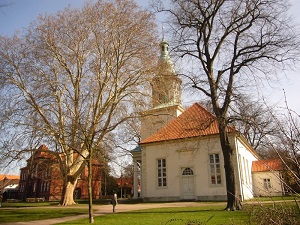
Hoffmann von Fallersleben (2 april 1798 – 19 januari 1874)
De Michaeliskirche in Fallersleben. De kerk werd in 1805 gebouwd door de vader van de dichter
Zie voor de schrijvers van de 26e december ook mijn drie vorige blogs van vandaag.


